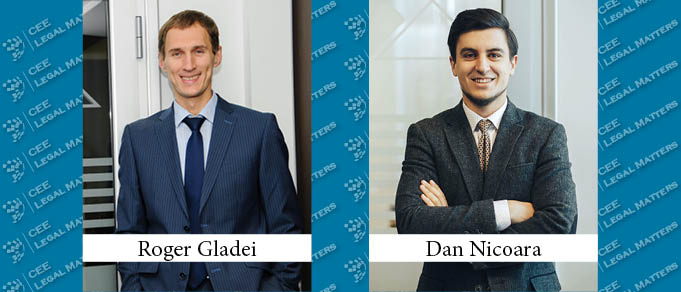The time is gone forever when our lawyers would sit down in a physical data room to dig through tons of documents provided by the target’s head of legal or corporate secretary. We will miss the personal contact, but it’s fair to say that the due diligence process has become more streamlined and efficient in Moldova, making it possible to shrink the timing of M&As and close deals in weeks rather than months.
Having learned from the painful experience of legal negligence in the early days of Moldovan acquisitions (particularly at the privatization stage), which resulted in disputes and even property vindication, foreign investors have become more diligent and prudent, preferring to go for professional advice from day one (or even before) of an investment project in Moldova. In addition, a purely Moldovan element, the “billion theft” from the banking system, has caused investors to take pains to do their homework properly, instructing Moldovan counsel to look into all dark corners of potential target companies.
The large-scale acquisitions landscape has been dominated in recent years by banking deals. The state needed to clean the banking system from the non-compliant shareholders who had managed to populate the largest banks in early 2010s, posing systemic risks. So the remedy chosen was revolutionary: a special law passed in December 2017 that shielded the acquirers of systemic banks from legal attacks from former shareholders. In such 1-2-3 legal dribbling, shares of non-compliant shareholders were to be annulled, new shares issued, and the state was to purchase the new shares and sell them on to ultimate investors.
Reputable investors fell in love with the scheme and the two largest banks found new owners shortly thereafter: first in 2018, with the acquisition of a controlling stake in Moldova-Agroindbank (Moldova’s largest bank) by an EBRD-led consortium (a transaction selected as the Deal of the Year for Moldova by CEE Legal Matters), then in 2019, with the acquisition of a majority stake in the second largest bank, Moldindconbank, by Bulgaria’s Doverie Obedinen Holding.
Although dealmakers predicted that in 2020, as the COVID-19 cloud loomed, Moldovan M&A would stall, in fact April 2020 saw the acquisition of the country’s second largest ICT operator – Moldcell – by CG Cell (a member of CG Global), in a combination of equity and shareholder loan purchase deal.
As local law allows parties to shop both jurisdiction and forum, the overwhelming majority of Moldovan cross-border M&A transactions are English-law governed, with LCIA or other reliable arbitral tribunals set as dispute resolution fora.
Sale-purchase framework agreements (backed by local law transfer instruments) are quite often followed by shareholders, and less often, by share put and call agreements. Drag-along, tag-along, or first refusal right provisions are widespread but untested in Moldovan courts, which are left aside.
With 50 double taxation treaties in place, the Republic of Moldova has actually invited investors to shop the tax jurisdiction as well. No wonder investors, including reputable ones, have preferred structuring investments via tax-friendly jurisdictions like the Netherlands or Cyprus, and that banking regulations have been shaped to accept SPVs from transparent jurisdictions.
Looking ahead, 2020 foreshadows more challenging times for dealmakers. The year got off to a strong start, but many coped with increased volatility in equity markets, decreasing valuations, and local economic and political uncertainty.
We believe Moldovan authorities will be seeking strictly to enforce merger control regulations, given the record levels of fines of up to EUR 1 million imposed in the past. The competition council and other branch regulators will also seek to bolster their foreign investment regulations. Also, considering the political discussions currently held on merger control for sectors deemed to be of national interest (such as airports and energy companies), future transactions may well be subjected to increased government scrutiny.
Businesses planning to expand or restructure through M&A in 2020 or beyond will do so against a background of changing political, trading, and social conditions. Despite the challenges, however, since Moldova is also rich with companies in the SME sector, where there is rarely a natural succession plan, these companies will need either a trade exit or a management buy-out. The outlook for M&A in Moldova therefore remains promising.
By Roger Gladei, Managing Partner, and Dan Nicoara, Senior Associate, Gladei & Partners
This Article was originally published in Issue 7.6 of the CEE Legal Matters Magazine. If you would like to receive a hard copy of the magazine, you can subscribe here.



